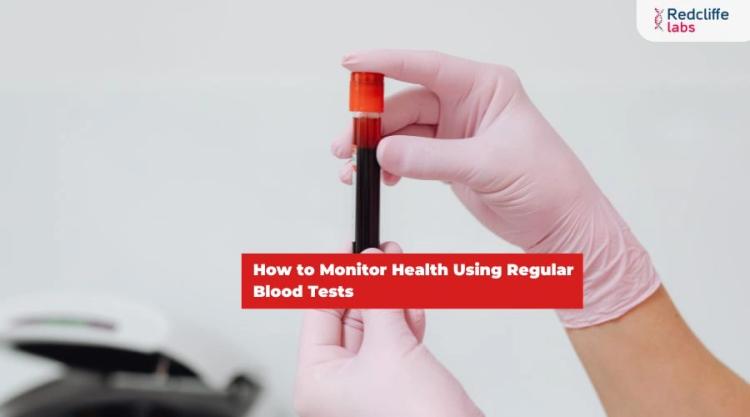What Tests Are Done for Diarrhea?

Medically Reviewed By
Dr. Ragiinii Sharma
Written By Prekshi Garg
on Aug 27, 2022
Last Edit Made By Prekshi Garg
on Jan 9, 2025

Experiencing diarrhea multiple times a year is common. For the most part, the condition isn’t life-threatening or fatal. However, persistence in the symptoms and the lack of subsequent recovery is where you need to start paying attention and getting it checked.
Diarrhea is typically a major concern in infants, children, and older people since it can indicate an underlying infection or disease that needs immediate attention. If you are experiencing the standard symptoms of diarrhea (loose and watery bowel), the first line of treatment is the “waiting game”. However, if the symptoms don’t get better, that’s where different diarrhea tests come into play.
This article will walk you through the important tests that are crucial for a confirmed diagnosis of diarrhea.
What is Diarrhea?
Diarrhea is a medical condition that causes the discharge of loose and watery stools. It is typically a sign of viral infection or food poisoning that happens from ingesting infected food items or water.
In rare cases, the persistent or recurring incidences of diarrhea can be an indication of irritable bowel syndrome, celiac disease, lactose intolerance, etc.
Most of the diarrhea cases recover on their own. However, if the symptoms don’t get better within a day or two, consulting a doctor and getting relevant testing is crucial for the proper administration of the required treatment.
Since diarrhea leads to risks of dehydration, weakness, and malnutrition, getting proper testing and treatment is crucial for optimal recovery. Medical assistance is necessary if the symptoms last for over 48 hours.
How is Diarrhea Diagnosed?
Diarrhea isn’t always a life-threatening complication, which means that you don’t necessarily need medical assistance right away. If you are witnessing loose and watery stools multiple times throughout the day, it is a sign of diarrhea.
The diagnosis or testing procedure involves:
- Self-monitoring
- Lab-based testing after doctor’s consultation
- Imaging tests for ruling out additional suspicions
Here’s a quick breakdown of each diagnostic measure for better understanding:
Self-monitoring of Diarrhea
Self-check involves monitoring the frequency of the loose and watery stools. Your aim is to assess how many times you are rushing to defecate, the consistency of the stools and whether or not there is any blood discharge with the stool.
Generally, the self-monitoring period is for 48 hours. If the symptoms don’t recover even after the first two days, that’s where you need to consult a doctor.
In the case of children, the waiting period of self-monitoring is for 24 hours only since they are at higher risk of getting malnourished or dehydrated.
Some of the signs that can indicate a possible concern include:
- Blood discharge during defecation
- Having a persistently high fever
- Stools that are black in color
- Severe pain in the abdomen
- Signs of dehydration
If you are planning to book a doctor’s consultation, keep a list of the last day’s meal, any recent travel history, or even the list of medications you are on.
Lab-based Testing
If the diarrhea symptoms are persistent even after 48 hours (24 hours for children), consulting a doctor is your best bet. Your doctor will ask for a comprehensive list of your medical history, your diet, the kind of medications you are on (if any), etc.
Getting a complete picture of the situation and the symptoms allows them to prescribe the required tests that can confirm a diagnosis.
Some of the important tests include:
| Stool Tests | |
| Name of the Test | Purpose of the Test |
| Stool Culture | -Looks for the presence of microorganisms in the stool, including bacteria, parasites, etc.
-Common triggers include Campylobacter, Salmonella, and Shigella |
| Stool Panel | -Assesses the genetic material of certain pathogens
-Quicker results within a few hours |
| Clostridium Difficile Toxin Test | -Monitors the presence of the Clostridium difficile bacteria
-Checks for overgrowth |
| Ova and Parasites Test | -Checks for presence of parasites in the GI tract
-Check for overgrowth of Giardia lamblia |
| Fecal Occult Blood Test | -Monitor presence of blood in the stool
-Distinguish between red-colored foods or red blood cells in the stool |
| Fecal Fat Test | -Measures the fat levels in stool
-Used for diagnosing intestinal complications |
| Stool Antigen Tests | -Assess the presence of rotavirus or other parasitic infections |
| Fecal Elastase | -Monitor the pancreatic functioning
-Helps diagnose of exocrine pancreatic insufficiency (EPI) |
| Fecal Trypsin/Chymotrypsin | -Monitor the presence of pancreatic enzymes in the stool
-Used for a possible diagnosis of cystic fibrosis or pancreatic insufficiency |
Blood test for diarrhea involve testing for the presence of certain groups and species of parasites, yeast antibodies, celiac disease antibodies, etc. Besides that, a blood test will also assess the complete blood count to monitor if there are any active infections in the body or not.
Imaging Tests
If the standard lab-based testing of the blood and stool doesn’t yield favorable results, your doctor will then proceed to suggest imaging tests. These are used to monitor the anatomical status of the digestive system and the other allied organs to check if the complications are from an underlying disease or not.
Let us walk you through the imaging tests as well:
Abdominal ultrasound – if your doctor suspects any underlying issue with the abdominal organs, an ultrasound can assess the issues and provide a comprehensive outlook on the situation.
Flexible sigmoidoscopy or colonoscopy – uses a thin, lighted tube that’s inserted into the colon via the patient’s rectum. It assesses the colon and the allied tract to check for lesions, obstruction, or tumor growth. If something seems amiss in the tissues, your doctor might excise a tissue sample as well to send it forward for biopsy.
Upper endoscopy – monitors the upper small intestine using a long and thin tube with a camera fitted on one end. It also checks the stomach. Tissue samples are collected for further testing.
If you are at risk of lactose intolerance, your doctor might perform a hydrogen breath test to confirm your suspicions. The test involves drinking something with high lactose and the patient is then asked to breathe out. Excess levels of hydrogen in the exhale indicate possibilities of lactose intolerance, which could be the reason behind chronic diarrhea.
FAQs
Is having diarrhea every day normal?
Having diarrhea every day is a sign that your food isn’t being digested properly or there is something wrong with the body. It could be a sign of an undiagnosed disease or an active infection too.
What cancers cause diarrhea?
Certain cancer types like colon cancer, lymphoma, pancreatic cancer, etc. can contribute to recurrent diarrhea in the patient.
How long is too long for diarrhea?
If diarrhea lasts for over 48 hours, it is a sign of concern and needs immediate medical assistance.
Conclusion
Diarrhea typically gets better over time. However, if the symptoms are persistent and recurring, it is a sign of concern that needs immediate medical intervention. Consulting a doctor and getting all the relevant tests is crucial for recovery. In some cases, diarrhea can also be an early sign of other complicated concerns. Getting tested is thus a necessity and not an option.
Book your tests as per your doctor’s prescription to get a confirmed diagnosis and relevant treatment to cure the symptoms before things take a turn for the worse.



